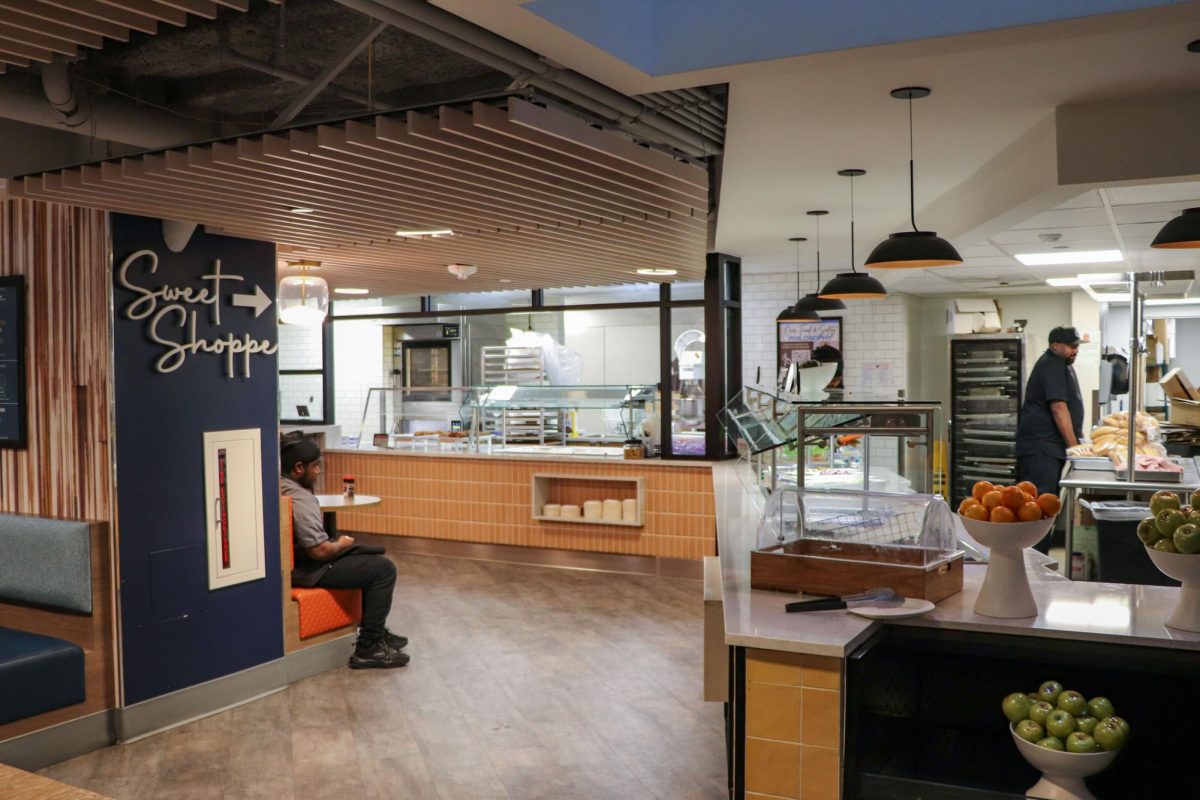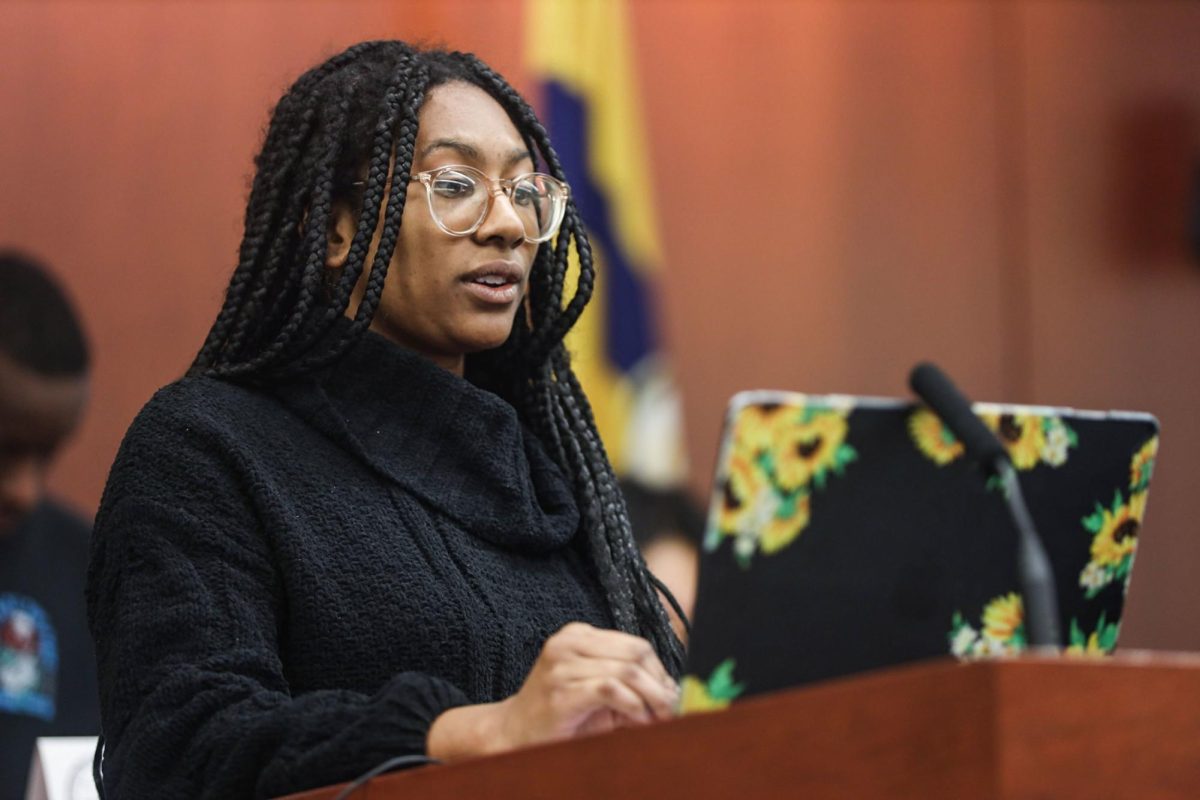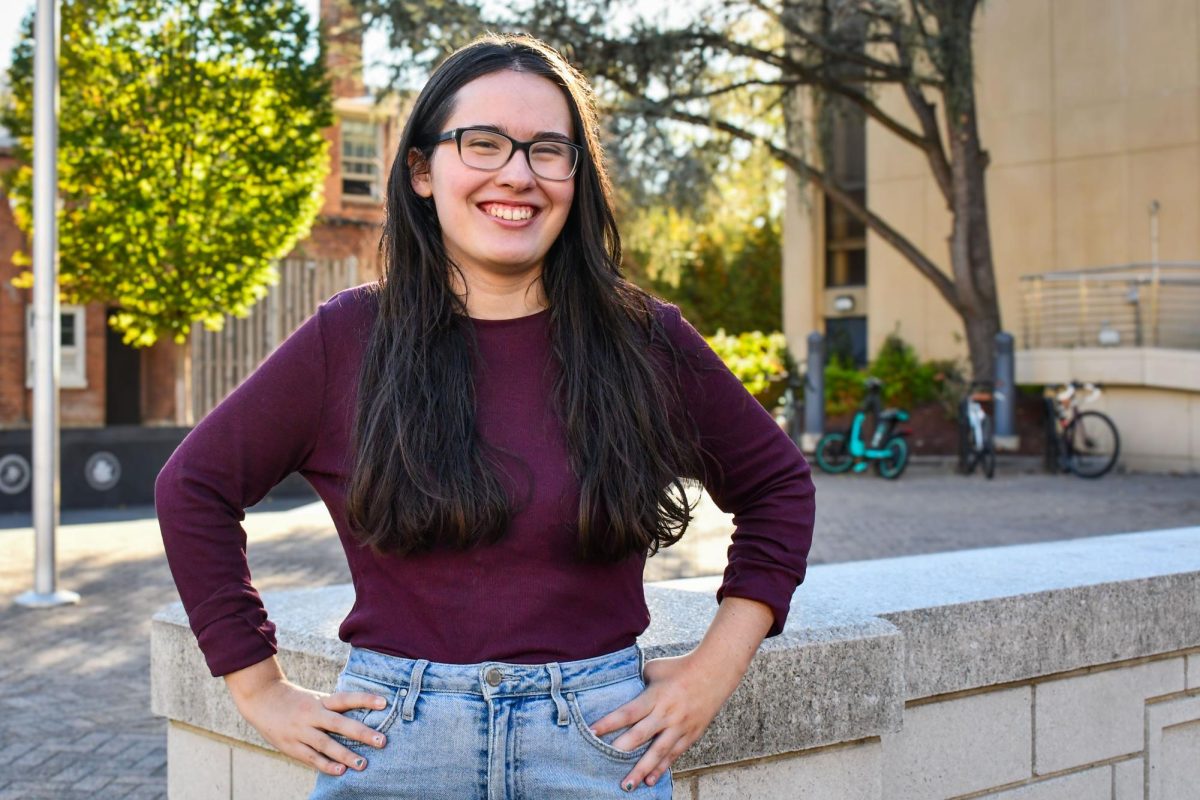The current Student Association president became the first to announce his campaign for the SA’s top spot for the next term Tuesday.
SA President Brandon Hill – a junior who previously served as executive vice president and assumed the presidency last month – is running on a platform to improve course affordability, student inclusivity in governance and internal operations in the SA. Hill said he will work with members of the SA Senate and officials to help students regain stability following the COVID-19 pandemic and expand cultural resources on campus outside of the Multicultural Students Services Center.
“I think I am someone who doesn’t take myself too seriously and still takes the work I do seriously,” Hill said. “And that’s how you add personability to the work that we do and allow students to feel comfortable bringing issues to you and believing that you’ll actually act upon them, rather than them shouting into an empty hole.”
Hill is required to gather at least 250 signatures during the candidate registration period from Feb. 24 to March 3 and be approved by the Joint Elections Commission to qualify as a candidate. The senate approved legislation in November that cut the number of required signatures in half for candidates to run this year.
Hill said the relationships he has built with officials throughout his time in the SA will give him an advantage if elected as president because he “won’t have to start from the ground up.”
He said he has built a “super collaborative” relationship with Mark Diaz, the executive vice president and chief financial officer. He said they have worked together to advocate for financial policies for students in the past, like extending the timeline for when students can receive a refund after dropping a course.
“Having those powerful and strong relationships with administrators just makes it more of a collaborative effort rather than a fight,” Hill said.
Hill said in his three years in the SA, he served on the student engagement committee where he collected “anecdotal data” from students on the Mount Vernon Campus to gauge interest in providing lockers for those students on Foggy Bottom. He said as a Columbian College of Arts and Science senator, he established the Black Senators Caucus, which he said has sparked the creation of other caucuses in the body.
He said as the executive vice president, he worked with officials to increase the amount of refunds a student can receive if they drop a course and implement an optional Pass/No Pass policy for students during virtual instruction.
“I think these are all issues that have been driven by the students and for the students,” Hill said. “And they all start with students expressing concern or students raising their voices.”
Hill said he hopes to work with administrators to ensure financial support policies implemented due to the pandemic will remain in effect in the future. He said officials should continue to allow students to register for classes with an outstanding tuition balance of up to $2,500 instead of reverting back to a previous threshold of $1,000.
“The University has been doing some really positive things to impact the student experience,” Hill said. “They’ve been deemed as temporary, so I want to make sure that the University doesn’t rubber band back in terms of the financial policies that were implemented this year.”
He added that he plans to work with the financial aid office to move forward with creating an advisory board for students to collaborate on improvements to financial aid policies.
He said he intends to work with officials in the Office of Diversity, Equity and Community Engagement to create an Office of Spiritual Life as a partner for the Department of Business and Auxiliary Services. He said the office could examine GWorld vendors to create more cultural food options, be an outlet for students looking to explore more religious-based courses and allow them to receive spiritual guidance and counseling outside of the Colonial Health Center.
SA leaders worked with officials to expand the number of religious holiday accommodations for students, which were approved for the spring semester.
Hill said he is currently working with Provost Brian Blake to gather faculty input about a possible mandate that all course syllabi are posted to Blackboard before students register for courses. He said allowing students to gain access to syllabi before courses start will allow them to know what textbooks they need before classes begin, and Blake has expressed support for the policy.
Hill said if elected, he will prioritize increasing accessibility to buildings on campus for disabled students, which he said has been an ongoing issue before the pandemic started. He said he wants to continue to push the University to appoint an Americans with Disabilities Act compliance officer, which he said officials have yet to hire because of the University-wide hiring freeze and a lack of students on campus.
With a new SA constitution going into effect for the next term, Hill added that he will focus on ensuring the SA’s internal operations run efficiently. The new constitution, which students approved during last year’s elections, simplifies the language of operations for the executive, legislation and judicial branches.
He said the executive cabinet is not outlined in the updated constitution and therefore the new president will be able to “set a new precedent” in the executive branch. Hill said the president must know the “intention behind the constitution” to avoid “internal conflict” or potential lawsuits that could arise due to a lack of understanding of the governing documents.
He said he wants to create “the most robust cabinet in SA history” because the new constitution allows for the president to set the precedent of what the branch looks like. He said he plans to have an executive branch of 40 to 50 members, nearly double the number in previous years, to ensure SA leaders represent “as many students as possible.”
When Hill stepped in as SA president last month, he took over a cabinet that several students departed amid allegations that the former president fostered a “negligent and careless work environment.”
He said a “successful transition” after the election will require “extensive” knowledge of SA bylaws and the president’s position – knowledge he said he has gained through his current role as SA president and in serving on a committee that revised the SA constitution last year.
“My experience as president thus far will allow me to continue my current advocacy efforts without having to take the time to pause for a transition,” Hill said. “Students, at this moment, really can’t afford a transition process.”








